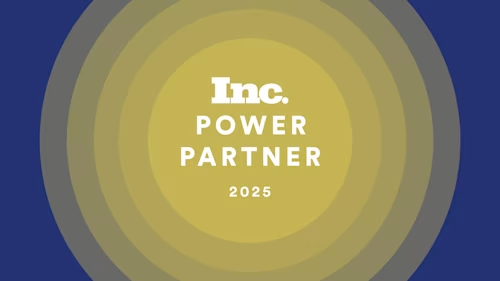
The Benefits of Using Docusign with Microsoft Apps
Docusign has expanded its global strategic partnership with Microsoft to accelerate how people collaborate and come to agreement.

Microsoft applications are among the most commonly used in business today, including for contract workflows that often involve many different systems across the business. Docusign provides a suite of Microsoft integrations to support the full course of any contract cycle— from document creation and collaboration to signing agreements and storage— so that users never have to leave the Microsoft platform.
Docusign has expanded its global strategic partnership with Microsoft to accelerate how people collaborate and come to agreement. Applications like Sharepoint, Word, Dynamics 365, Power Automate and more all work seamlessly with Docusign eSignature allowing you to accelerate and connect every stage of the agreement process.
Read on to learn more about how you can use Docusign applications with your favorite Microsoft solutions for:
Document creation
Collaboration
Electronic signature
Storage and management
Document creation
Need a simple signature on a short form or document? Recent Docusign research revealed that 68% of respondents use Word to generate contracts. With Docusign eSignature for Microsoft, it’s easy to create an electronic signature on a Word document without ever leaving the application.
For sales teams, the contract process can be more complex, involving the exchange of multiple signed forms and documents, from the initial non-disclosure agreement (NDA) through quoting to the final signed contract. If done manually, this process can take valuable time away from sellers as they copy customer information into these forms, not to mention the potential for errors.
Docusign eSignature for Dynamics 365 lets sales teams close deals faster and provides sales leaders greater visibility into signing status. Sales teams can pre-populate and pre-configure fields from Dynamics to automatically merge data to eSignature and back to ensure contract creation is efficient, easy and error free. Once the document is signed and completed, it is automatically saved to the Dynamics record to ensure all documents are in one central location.
Collaboration
Of all the steps in the contracting lifecycle, collaboration and negotiation are the most time consuming, according to recent Docusign research. One of the root causes of negotiation challenges is the lack of a common method to share contracts and collaborate on revisions. With 115 million+ daily active users relying on Microsoft Teams to collaborate, it simply makes sense to manage the contract negotiation process in Teams.
Docusign eSignature for Teams allows employees to get real-time notifications on agreements out for signature, as well as sign and send agreements right within Microsoft Teams. Quickly send HR onboarding documents, sales contracts and more for signature from within Teams. You will also get notifications when you need to sign or when someone completes an agreement, and reminder notifications are automatically sent to encourage others to sign and complete documents.
There’s also a tab to check the status on all agreements at a glance in a single dashboard view. Microsoft and Docusign partnered together to introduce eSignature capabilities in Approvals for Teams, enabling organizations to add eSignature workflows to follow an internal approval process.
The Microsoft Approvals app in Teams allows users to create, manage and share approvals directly from Teams. With this integration you can also create an electronic signature approval in Teams within the Approvals app, enabling you to streamline approval requests while keeping up to date on the status of the approval by receiving notifications.
Docusign CLM for Microsoft Word allows users to access a legal-clause library and an AI-powered risk scorecard from within Microsoft Word. A clause library offers pre-approved clauses in a central location for non-legal users to pull from during contract generation and negotiation, saving your legal team time.
For more straightforward forms and applications where no negotiation is required, you can also use Docusign eSignature for Microsoft Outlook to securely route agreements to the right people in the right order. In Outlook, employees can pre-populate fields using a template, as well as pre-populate recipients using contacts from Outlook. Just indicate the fields that need to be signed—and hit send.
Electronic signature
Regardless of which Microsoft application you choose to work in, Docusign eSignature remains the leading solution to sign documents electronically and empower your organization to:
Protect confidential business agreements and data
Delight customers with an intuitive signing experience
Improve employee productivity with configurable and automated workflows
Connect eSignature to the tools your teams use every day
Support environmental sustainability
Docusign eSignature includes an electronic record that serves as an audit trail and proof of the transaction. It also helps you meet some of the most stringent security standards, and uses the strongest data encryption technologies available.
Storage and management
Once agreements are signed, actions need to be fulfilled and terms carried out. Docusign eSignature for Power Automate allows organizations to facilitate end-to-end agreement workflows: create, tag, send, and sign documents all with a click of a button. After the agreement is complete, eliminate manual work by automating downstream tasks like document storage or data transfer between systems. Reading an agreement’s metadata sets post-signature workflows in motion—eliminating most or all manual processes. Users can synchronize files, receive notifications, collect data and initiate other processes to save time, avoid errors and meet deadlines.
Storing, searching or auditing agreements after the fact requires painstaking effort, often by highly skilled attorneys. Not only costly, the manual process is also prone to error. Where is that document stored? Does it contain that specific clause? When is that action supposed to be triggered? Compliance is checking for what?
Docusign eSignature for Microsoft SharePoint lets organizations securely send, sign, and track documents directly from any SharePoint Online document library. Connecting eSignature to SharePoint offer users the following options:
When completed agreements are managed in a SharePoint document library, they’re centralized on the cloud—and become easy to access and easy to search.
Once a contract in Dynamics 365 is signed, the opportunity is automatically updated with agreement information and the signed contract securely stored. Replacing manual customer relationship processes and application switching with automated agility and speed equips your business to keep driving forward.
Users who wish to initiate the sending process through Dynamics 365, and keep SharePoint as their central document repository, can connect their SharePoint site to Dynamics 365. So no matter where documents sent for signature originate, they get saved in SharePoint once completed.
By connecting SharePoint Lists to eSignature, users can pre-populate data from a SharePoint List to a field on a document in eSignature, and write data from a completed document in eSignature back to a SharePoint List.
Seamlessly integrating a centralized agreement repository eases any agreement analysis that enterprises require. Agreements can be readily monitored for changes in pricing, regulations, third-party requirements, benchmarks and other circumstances.
With Docusign eSignature for Microsoft, your team can manage the entire contract lifecycle right from the applications where work gets done, boosting productivity, reducing errors and accelerating the contract process.
Learn more about how Microsoft and Docusign are continuing to innovate to automate and connect the entire agreement process.
Related posts
Docusign IAM is the agreement platform your business needs




